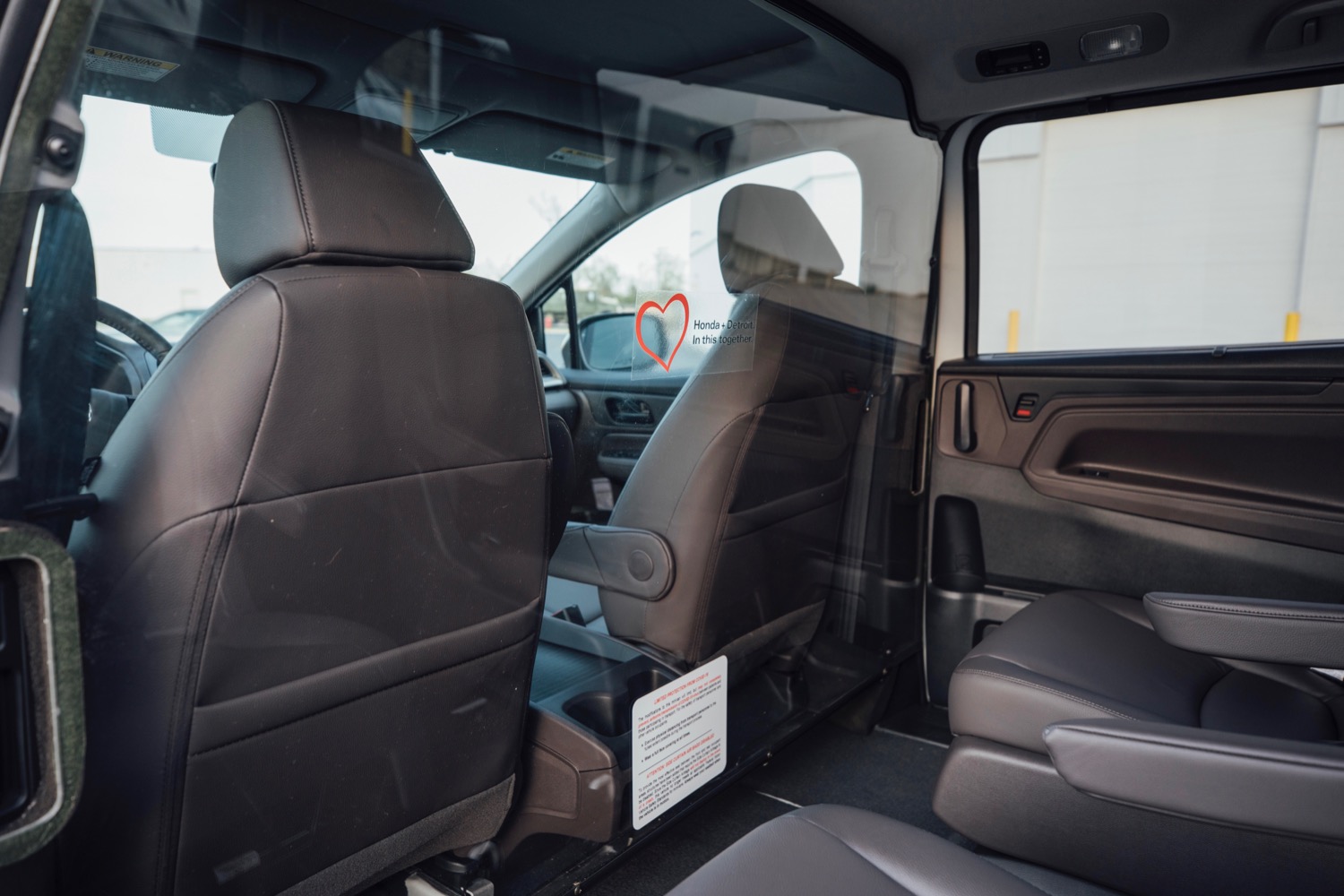The Honda Odyssey was designed for school runs and family road trips, but it will soon undertake a more important mission. Honda delivered 10 of the minivans to the City of Detroit to transport people potentially infected with COVID-19, as well as healthcare workers. The minivans were specially modified for coronavirus-transportation duty, a Honda press release said.
Each Odyssey was fitted with a plastic barrier behind the front seats. The ventilation system was also modified to maintain an air pressure differential between the front and rear of cabin. These two elements help prevent respiratory droplets from reaching the driver, lowering the chance of infection. In addition to the physical barrier separating the driver from patients, the air pressure differential ensures airborne droplets don’t circulate around the cabin. It’s the same method used for negative-pressure rooms at medical and research facilities to prevent the spread of contagions.
Honda said it was approached in mid-April by Detroit and Michigan state officials, who had seen reports of similar modifications made to Honda Odyssey minivans in Japan. However, the version of the Odyssey sold in Japan is smaller than the model sold in the United States, so the modifications wouldn’t carry over.
Honda assembled a team of engineers and other experts at its Raymond, Ohio, research and development center to devise a new set of modifications for the U.S.-market Odyssey. All work was done in-house over roughly two weeks, according to Honda.

Engineers added brackets to fasten the plastic barrier, while changes to the ventilation system were done with software. It was rewritten so that the blower motor powering fans for the front seats spins faster than fans for the rear seating area. Air from the rear of vehicle is exhausted outside through vents.
The modified minivans may transport patients to Detroit’s TCF Center, which was slated to host the 2020 Detroit Auto Show in June. The event was canceled due to the pandemic, and the venue was converted into a field hospital.
Like most automakers, Honda shut down production in response to the pandemic. North American car production has been suspended until May 8. Honda has shifted to making medical supplies, including 3D-printed components for face shields, and diaphragm compressors for ventilators. The automaker said it had also donated 200,000 items of personal protective equipment, including N95 masks, gloves, face shields, alcohol wipes, and half-mask respirators.


